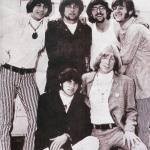Michael Gerson’s piece in the Atlantic on President Trump’s appeal to evangelicals is revealing of an essential aspect of anti-Trump arguments: these critics of the president assume that America is too good for a person like Trump. If the U.S. were really a nation like Russia or Germany, well, then we might appropriately elect someone as disreputable as Trump. But we are too good for that. The U.S. is a great nation, an exceptional nation. That’s why Trump is so out of place.
For instance, Gerson piles high Trump’s sins:
Trump’s past political stances (he once supported the right to partial-birth abortion), his character (he has bragged about sexually assaulting women), and even his language (he introduced the words pussy and shithole into presidential discourse) would more naturally lead religious conservatives toward exorcism than alliance. This is a man who has cruelly publicized his infidelities, made disturbing sexual comments about his elder daughter, and boasted about the size of his penis on the debate stage. His lawyer reportedly arranged a $130,000 payment to a porn star to dissuade her from disclosing an alleged affair. Yet religious conservatives who once blanched at PG-13 public standards now yawn at such NC-17 maneuvers. We are a long way from The Book of Virtues.
Of course, all of this is also true of the United States — abortion is legal, foul language is widely available even on PBS (think Ken Burns’ series on Vietnam with recordings of presidents using crude words), no-fault divorce is common, Hollywood regularly makes adultery and pre-marital sex look appealing, and sports talk radio hosts regularly allude to the size of a man’s member.
If Gerson can bear to live in the United States, why can’t he tolerate a president who has all the trademarks of the nation whose government Gerson has served?
Some of the problem is that Gerson is selective, as John Fea observes. Gerson does not identify all of the glories of the United States but he has no trouble accenting the positive about evangelicalism:
In his Atlantic piece, “The Last Temptation,” Michael Gerson discusses the first half of the 19th-century as a time when evangelicals led social reform movements to end slavery. We could also add other reform movements to his story, including efforts to curb the negative effects of alcohol, the crusade to win the vote for women, the movement to reform prisons, and the evangelical commitment to the education of urban young people through Sunday Schools. All of these reform movements had roots in the genuine desire of “revived” evangelicals (products of the Second Great Awakening) to apply their faith to public life.
But let’s not forget that evangelicals were also, often at the very same time, involved heavily in some of the darker moments in the American past. They were trying to limit Catholic immigration out of fear that Catholic immigrants would undermine their Protestant nation. The Southern ministers and laypersons who experienced intense revivals in Confederate army camps were, in many cases, the same people constructing a sophisticated biblical and theological argument in defense of slavery.
In another piece, John Fea comments on a recent piece in the Washington Post by sociologists who find that:
The more someone believed the United States is — and should be — a Christian nation, the more likely they were to vote for Trump
I contend that the more someone believes the United States is — and should be — exceptional, the more likely they are to oppose President Trump. That’s my story and I’m sticking with it.












